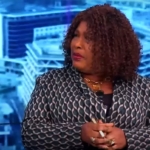General
Why are we paying so much for ‘horrible content’? – Yaa Jantuah tears into DStv pricing
The ongoing standoff between the government and MultiChoice Ghana over DStv subscription prices has gained a prominent new ally. Presidential Staffer and former Public Utilities Regulatory Commission Executive Secretary, Nana Yaa Jantuah, has thrown her full support behind Minister of Communicat...
MyJoyOnline
published: Aug 05, 2025


The ongoing standoff between the government and MultiChoice Ghana over DStv subscription prices has gained a prominent new ally.
Presidential Staffer and former Public Utilities Regulatory Commission (PURC) Executive Secretary, Nana Yaa Jantuah, has thrown her full support behind Minister of Communications, Digital Technology and Innovation, Samuel Nartey George, calling for a significant price reduction and criticising DStv’s content as “horrible”.
In an interview on JoyNews’ AM Show on Tuesday, August 5, Nana Yaa Jantuah linked the DStv matter to broader consumer protection issues.
“Yes, I agree with the minister. They (MultiChoice Ghana) should reduce their prices because their content is even horrible.”
She further explained her personal viewing habits, revealing, “I keep DStv in my house because of the men in my house. Otherwise, I’ll go to Netflix. You see, apart from the African magic content, all the foreign content is old.”
The comments from Nana Yaa Jantuah come as Mr Sam George continues to apply pressure on MultiChoice Ghana to slash its subscription fees by 30%.
The minister’s campaign, which began with a meeting in late June 2025, is a response to what he describes as “unfair and exorbitant” pricing for Ghanaian consumers, especially in comparison to other markets on the continent.
Last week, the minister gave MultiChoice an ultimatum, directing the National Communications Authority (NCA) to suspend the company’s broadcasting licence if it fails to implement the price cut by Thursday, August 7.
This directive follows MultiChoice’s rejection of the proposed 30% reduction, which the company, in a statement issued on August 3, deemed “not tenable.”
The minister has repeatedly cited significant pricing disparities, noting that while the premium bouquet costs a Ghanaian subscriber the equivalent of over $82, the same package costs Nigerians approximately $29.
He has dismissed MultiChoice’s justifications, which have often hinged on the depreciation of the Ghanaian cedi, pointing out that in the same period, the Nigerian Naira depreciated by a higher margin, yet Nigerians pay significantly less.
This is not the first time the government, under the minister, has intervened in the pricing of telecommunication and digital services. Earlier this year, a similar engagement with major mobile network operators (MTN, Telecel, and AirtelTigo) resulted in a 10-15% increase in data bundle volumes for consumers, a move lauded by the public.
In its response, MultiChoice Ghana has defended its pricing structure, citing the challenging “macroeconomic environment” and the need to maintain service quality and content variety.
The company also suggested a counter-proposal where it would maintain current prices but stop remitting revenue to its South African headquarters. The minister, however, rejected this offer as “illogical”, insisting that the core issue is the price Ghanaians pay, not where the revenue goes.
The ongoing dispute has sparked a wider debate about consumer protection, regulatory powers, and the lack of competition in Ghana’s pay-TV market.
While many Ghanaians and political figures, including the Minority in Parliament, have voiced support for a price cut, some analysts have cautioned against a heavy-handed regulatory approach.
They argue that such a move could set a dangerous precedent for government interference in private sector pricing and potentially deter foreign investment.
As the August 7 deadline looms, all eyes are on the Minister of Communications and the NCA to see if a compromise can be reached or if the government will proceed with its threat to suspend MultiChoice’s licence, a move that would have widespread implications for millions of DStv subscribers and the company’s hundreds of employees in Ghana.
Read More